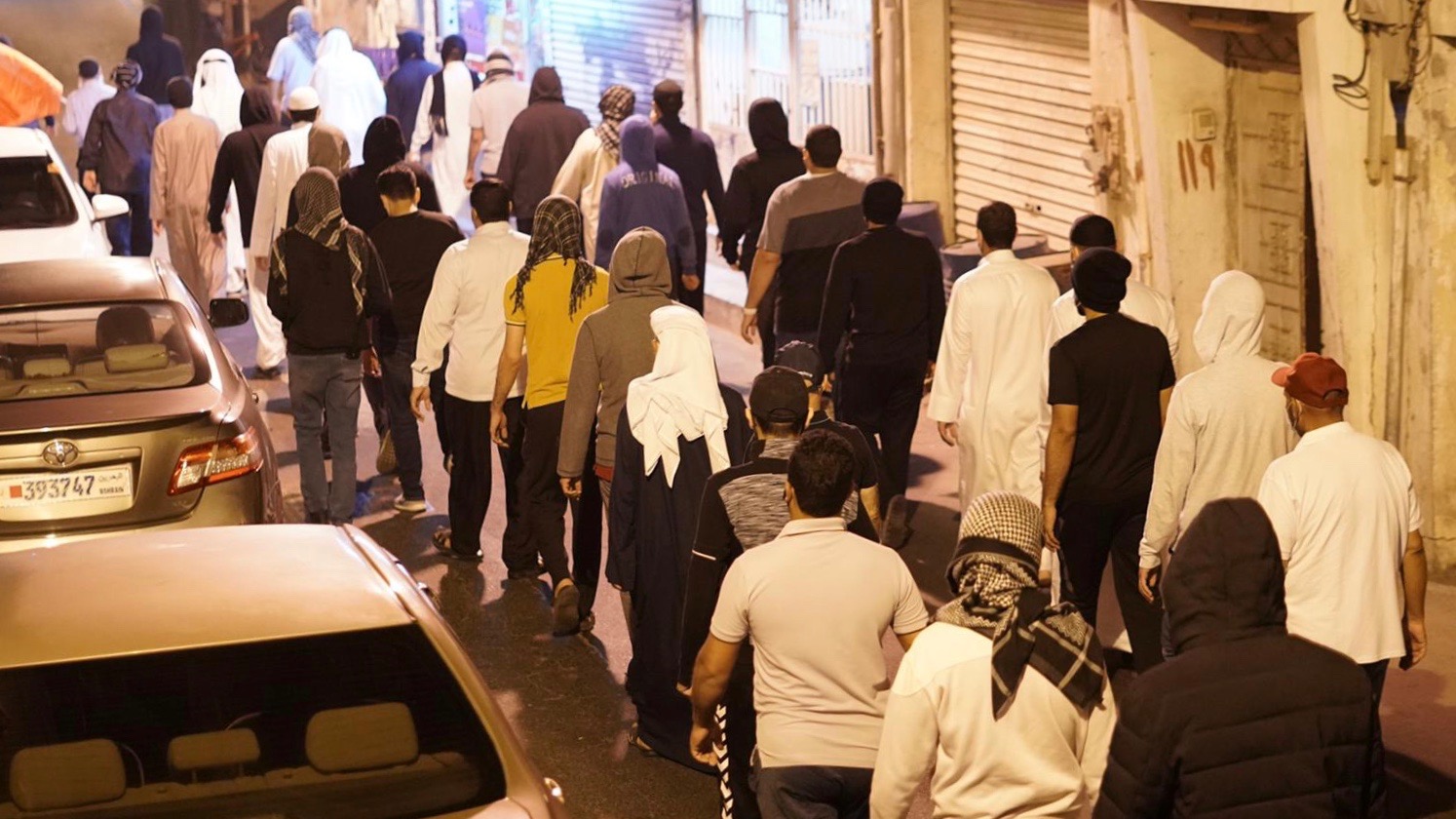Scores of Bahrainis took to the streets on Sunday, February 14, marking the tenth anniversary of the anti-government protests of 2011. Removal of the ruling al-Khalifa dynasty and establishment of democracy are the primary demands of the protesters.
The protests were organized on Saturday evening and Sunday despite severe restrictions under the guise of COVID-19 prevention measures. Several small-scale protests were organized in different cities across the country.
Protesters waved the national flag and shouted slogans against the ruling al-Khalifa family which has been accused by the protesters of persecuting citizens on the basis of sectarian differences and stifling political dissent. The majority of Bahrainis belong to the Shia sect of Islam while the ruling dynasty belongs to the Sunni sect.
#February14: Today marks the 10th anniversary of #Bahrain's pro-democracy uprising. Over 10 years, many have died on the street or under torture, lost their freedom, injured, tortured, and ill-treated. These people only wanted a democracy governed by a law without discrimination.
— Bahrain Human Rights (@BahrainRights) February 14, 2021
Pro-democracy protests broke out in Bahrain in 2011 following the protests in Tunisia and Egypt, popularly known as the “Arab Spring”. The protesters demanded the end of monarchy and the establishment of a democratic polity. However, the protests were crushed by the state through the use of armed personnel from neighboring Saudi Arabia and other Gulf monarchies.
The government also demolished the iconic Pearl Square in the heart of capital Manama after it emerged as the gathering point for the protesters.
The regime in Bahrain alleged that the protesters were acting on behalf of Iran. It has since cracked down on all kinds of political dissent with scores of pro-democracy and human rights activists in jail.
The ruling establishment in Bahrain, a close US ally and host of its fifth fleet, has lost popular support due to its refusal to bring in political reforms. The signing of the US-backed “Abraham Accords” normalizing relations with Israel last year also led to further erosion of the government’s legitimacy.





